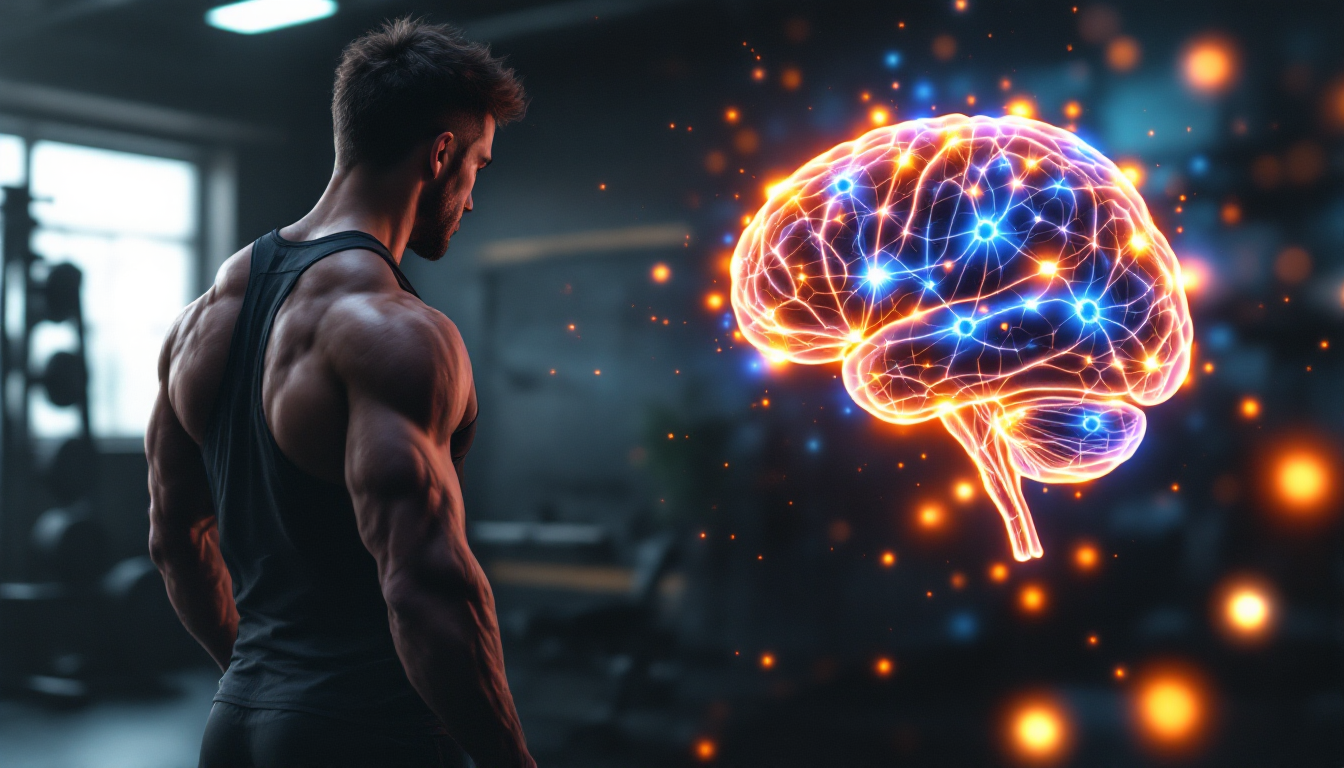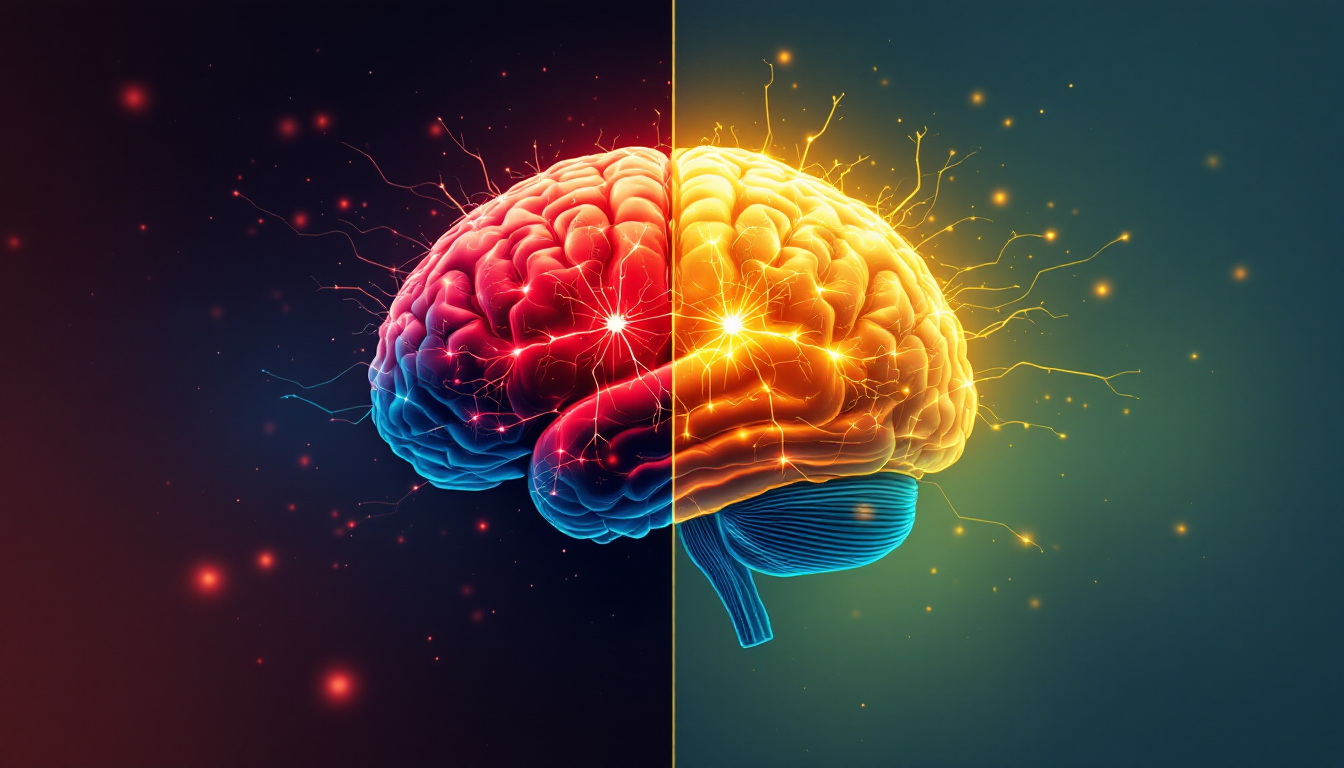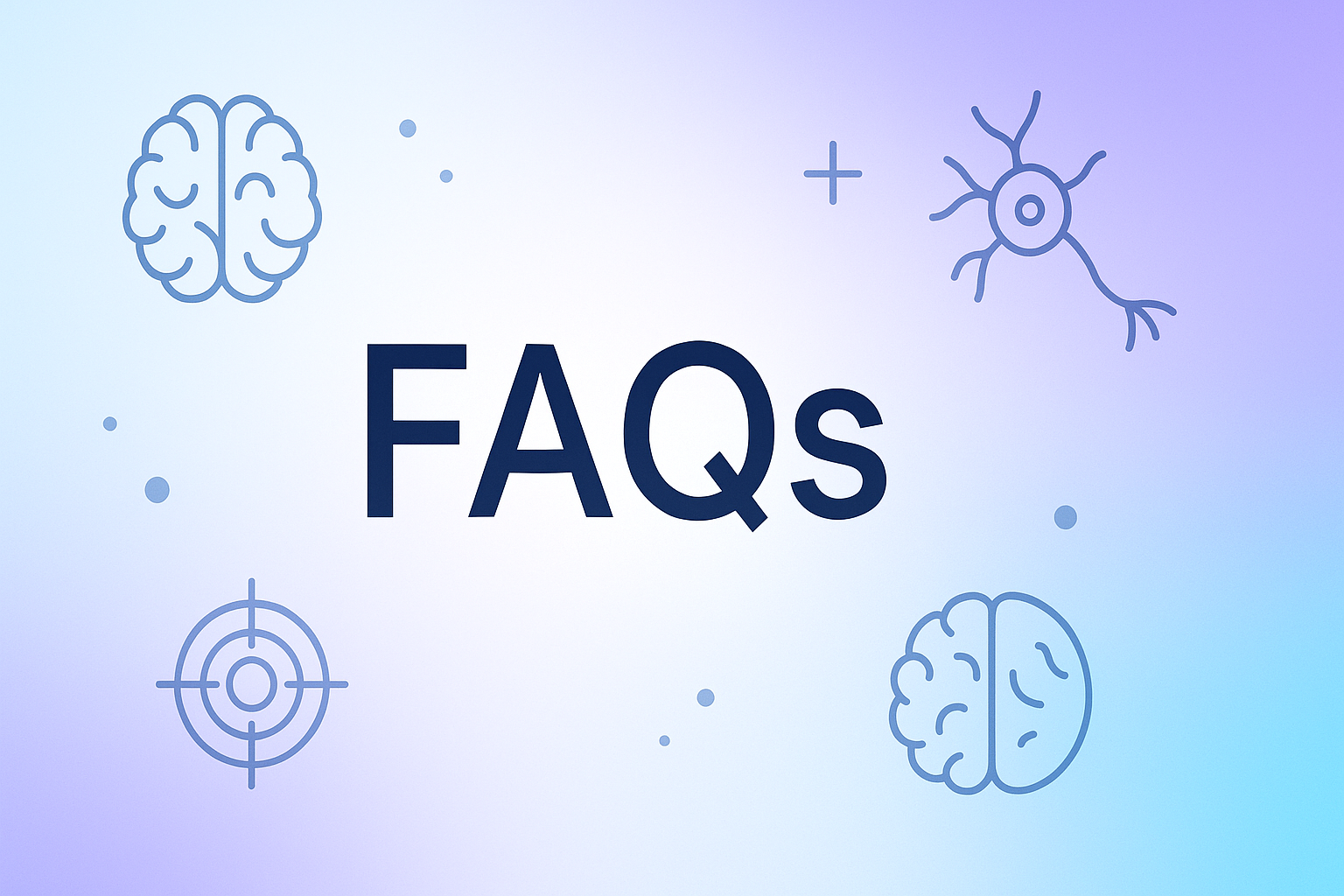Creatine for the Brain: Boost ADHD Focus & Mental Energy Naturally
Creatine for the Brain: Why This Supplement Might Help ADHD Focus
You know the feeling. It’s that internal static, the mental browser with 50 tabs open, the constant, draining search for a quiet moment of clarity. For those of us with ADHD, this isn't an occasional nuisance; it's the daily reality. We’re often led down the path of stimulants, which can be life-changing for many, but also come with a cost: the jitters, the crashes, the feeling of being emotionally numb, or the growing fear of dependency. What if there was another way? Not a replacement, but a foundational support system for your brain? We’re going to explore creatine for the brain, a well-researched supplement famous for building muscle, but whose most exciting benefits might just be for our minds. This isn't about a magic pill, but about understanding and fueling your brain's core energy systems to unlock more natural, sustainable focus.
From Biceps to Brain Cells: What Is Creatine, Really?
Most people associate creatine with bodybuilders and gym enthusiasts. And for good reason, it’s one of the most studied and effective supplements for improving physical strength and performance. But to limit creatine to the gym is to miss its most profound role.
At its core, creatine is a natural substance that helps your body recycle its primary energy currency: adenosine triphosphate (ATP).
Think of ATP as the cellular battery for your entire body. Every single action, from lifting a weight to firing a neuron, drains a bit of that battery. Creatine acts like a rapid-charging power bank, quickly helping to regenerate ATP so your cells can keep working at a high capacity.
While your muscles need a lot of energy during a workout, your brain is the single most energy-demanding organ in your body, consuming about 20% of your total ATP, despite being only 2% of your body weight. This is where the story gets interesting for ADHD.
How does creatine help the brain?
Creatine supports brain function by increasing the availability of ATP, the primary energy currency of your cells. This boost in cellular energy can help improve mental stamina and cognitive processing, especially in brain regions responsible for complex thought.
The ADHD Brain on Low Battery: The Creatine Connection
The ADHD brain is often characterized by differences in certain regions, particularly the prefrontal cortex. This area is our "CEO" it governs executive functions like:
Focus and sustained attention
Working memory (our mental "sticky note")
Planning and organization
Emotional regulation
Impulse control
Research suggests that individuals with ADHD may have lower levels of brain energy metabolism in this crucial region. The neurons might not be firing as efficiently or consistently. It feels like trying to run sophisticated software on a phone with 10% battery life; it lags, it freezes, and it crashes.
This is where exploring creatine for cognitive enhancement becomes so compelling. By providing the brain with more raw material to regenerate ATP, creatine may help stabilize the energy supply to the prefrontal cortex. It doesn't "force" focus like a stimulant; it fuels the biological machinery that creates focus in the first place.
How Creatine May Support ADHD Symptoms
Fighting Brain Fog and Mental Fatigue: Constant mental effort is exhausting. Creatine has been shown in multiple studies, like this landmark trial from the University of Sydney, to significantly reduce mental fatigue during demanding cognitive tasks. For the ADHD brain, which is always working overtime to filter distractions, this can mean more mental stamina to get through the workday or a long study session.
Sharpening Working Memory: Do you ever walk into a room and forget why you’re there? Or lose your train of thought mid-sentence? That’s a lapse in working memory. Because working memory is an incredibly energy-intensive process managed by the prefrontal cortex, improved ATP availability from creatine could help solidify those "mental sticky notes," making it easier to hold and manipulate information in your mind.
Boosting Processing Speed and General Intelligence: While more research is needed specifically in ADHD populations, studies on healthy individuals have shown that creatine supplementation can improve measures of processing speed and even fluid intelligence. This suggests that a better-fueled brain is simply a faster, more efficient brain.
PKJ Pro Insight: A Foundation for Focus
"I see so many clients burned out from the stimulant rollercoaster," says Pen King Jr., founder of PKJ Coaching and Bonding Health. "They feel like their only option is to push their nervous system harder. I encourage them to think differently: fuel it better first. Creatine is a foundational piece of that puzzle. It's not about artificially creating dopamine; it's about giving your brain the energy it needs to regulate itself more effectively. When your brain isn't constantly in an energy deficit, emotional regulation and focus become less of an uphill battle."
Creatine vs. Stimulants: A Different Path to Clarity
It's essential to understand that creatine and stimulant medications like Adderall or Vyvanse work in fundamentally different ways.
Stimulants primarily work by increasing the amount of neurotransmitters like dopamine and norepinephrine in the brain. They act as an accelerator, pushing the system to go faster. This can be incredibly effective for focus but can also lead to burnout, tolerance, and the dreaded "rebound" effect when the medication wears off.
Creatine works at a much more basic, cellular level. It doesn't directly manipulate neurotransmitters. Instead, it improves the energy capacity of the entire system. It’s less like an accelerator and more like upgrading your engine's fuel source.
This makes creatine an intriguing tool, especially for those looking to reduce their reliance on stimulants or find a non-stimulant approach to managing their ADHD. It can provide a stable baseline of brain energy, potentially making stimulant medication more effective at a lower dose or helping to smooth out the energy crashes associated with stimulant rebound.
For those on a stimulant tapering journey, supporting the brain’s fundamental energy needs is a non-negotiable part of the process. You can learn more about this approach in our [Stimulant Tapering Program (placeholder URL)].
A Practical Guide to Using Creatine for Brain Health
Getting started with creatine is simple and cost-effective. Here’s what you need to know.
What Kind of Creatine Should I Buy?
Stick with Creatine Monohydrate. It is the most researched, most effective, and typically the cheapest form available. You don't need fancy, buffered, or liquid versions. Micronized creatine monohydrate can be a good choice as it dissolves more easily in water.
How Much Creatine Should I Take for My Brain?
The standard, evidence-backed dose for cognitive and physical benefits is 3-5 grams per day.
Loading Phase (Optional): Some people start with a "loading phase" of 20 grams per day (split into four 5-gram doses) for 5-7 days to saturate their cells more quickly. However, this isn't necessary, and starting with a consistent 5 grams daily will achieve the same saturation levels over about 3-4 weeks. For brain benefits, a steady approach is often preferred.
Maintenance Phase: After the optional loading phase, or from day one, simply take 3-5 grams every day. Consistency is key. Creatine works by accumulating in your system, so you need to take it daily, not just on days you need to focus.
When Should I Take It?
Timing isn't critical. Just take it whenever is most convenient for you to remember to take it daily—with your morning coffee, in a post-workout shake, or with a meal.
Is Creatine Safe?
Creatine is one of the safest nutritional supplements on the market, with decades of research backing its safety profile in healthy individuals.
Water Retention: Creatine draws water into your cells (both muscle and brain), which is part of how it works. You might notice a slight increase in weight (1-2 lbs) in the first week. This is just water weight, not fat. Be sure to drink plenty of water throughout the day.
Kidney Health: In individuals with healthy kidneys, long-term creatine use has been proven safe. If you have pre-existing kidney disease, you should consult your doctor before taking creatine.
Stomach Upset: Taking too much at once (like during a loading phase) can sometimes cause minor stomach discomfort. Splitting the dose or taking it with food usually solves this.
As with any new supplement, it is always recommended to consult with your physician or a qualified healthcare provider, especially if you have underlying health conditions or are taking medication. Check out this article for more about Is Creatine Good for Weight Loss?
Beyond the Supplement: Building Your Holistic Focus Toolkit
While adding creatine for brain health can be a game-changer, it's most powerful when integrated into a holistic system. True mental performance isn't found in a single pill; it's built through consistent, supportive lifestyle habits.
Creatine provides the fuel, but you still need to be the pilot. This means:
Nourishing Your Brain: A diet rich in protein, healthy fats (like omega-3s), and micronutrients provides the other building blocks for neurotransmitters and brain health.
Regulating Your Nervous System: ADHD is often linked to a dysregulated nervous system. Practices like breathwork, mindfulness, and even cold exposure can help build resilience and reduce the internal static.
Prioritizing Sleep: Sleep is when your brain clears out metabolic waste and consolidates memories. It is the single most important factor for cognitive function.
Mastering Emotional Regulation: Emotional impulsivity is a core challenge in ADHD. Learning to identify, understand, and manage your emotional responses is crucial for long-term success. Learn more about emotional regulation.
Combining creatine with these foundational pillars creates an ecosystem where your brain doesn't just survive; it thrives.
Frequently Asked Questions About Creatine and ADHD
-
Generally, yes. There are no known direct negative interactions between creatine and stimulant medications. Creatine works on cellular energy (ATP), while stimulants work on neurotransmitters. However, it is essential to speak with your prescribing doctor before adding any new supplement to your regimen.
-
Because creatine needs to accumulate in your brain cells, the effects are not immediate like caffeine or stimulants. Most people may begin to notice subtle improvements in mental stamina and clarity after 3-4 weeks of consistent daily use (taking 3-5 grams per day).
-
Yes. A nootropic is any substance that can improve cognitive function. Based on its well-documented ability to enhance memory and reduce mental fatigue under stressful conditions, creatine is considered a powerful and safe nootropic.
-
This is highly unlikely. The biological mechanism of creatine, providing cellular energy, is not known to exacerbate ADHD symptoms. Some anecdotal reports suggest that a very small number of people feel slightly more "energized" in a way that can feel like restlessness, but this is not a common or scientifically validated side effect. Most research points towards cognitive benefits.
-
The link is indirect but plausible. Dopamine synthesis and release are energy-intensive processes. By ensuring the brain has sufficient ATP, creatine may support the underlying health and efficiency of the entire dopaminergic system. A 2022 review in Nutrients highlights its potential neuroprotective effects, which include supporting systems like dopamine.
The Final Word: Is Creatine the Right Tool for Your Brain?
If you're on a journey to understand and manage your ADHD in a more holistic, empowered way, the research and rationale behind creatine for the brain are incredibly promising. It represents a shift away from just pushing your brain harder and toward fueling it smarter.
For adults struggling with focus, parents seeking safe, supportive options for their children, or professionals looking to achieve high performance without burnout, creatine is a worthy consideration. It's not a cure, but it is a powerful, science-backed ally that can help charge your brain's battery, clear the fog, and provide a more stable foundation upon which you can build lasting habits for focus, emotional regulation, and a thriving life. This is the first step toward reclaiming your mental energy, not just for today, but for the long haul.
Ready to move beyond just coping with ADHD and start building a system for sustainable mental performance? The journey starts with understanding your unique biology and creating a plan that works with your brain, not against it.
Book a free 30-minute clarity call with PKJ Coaching today to discover your path toward natural focus and emotional freedom.






